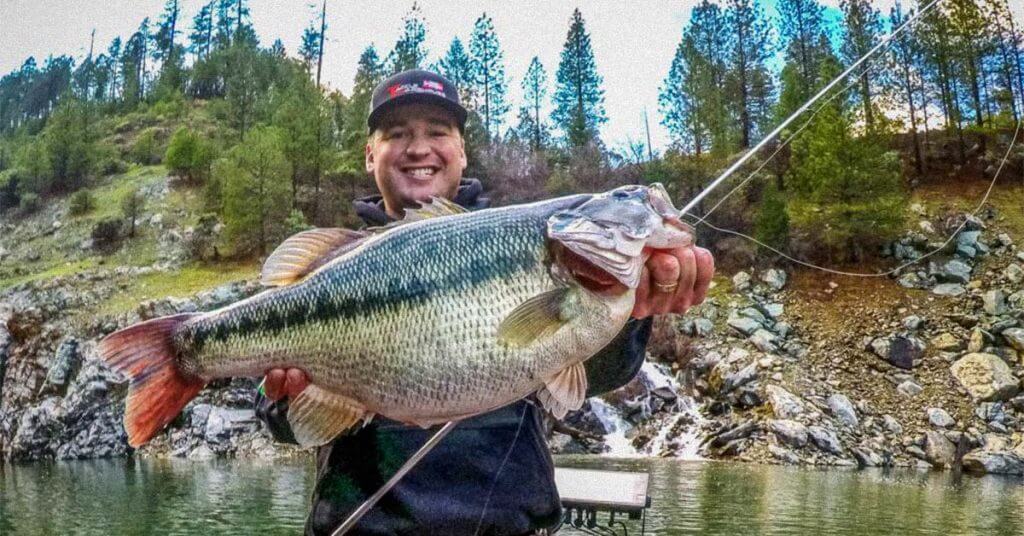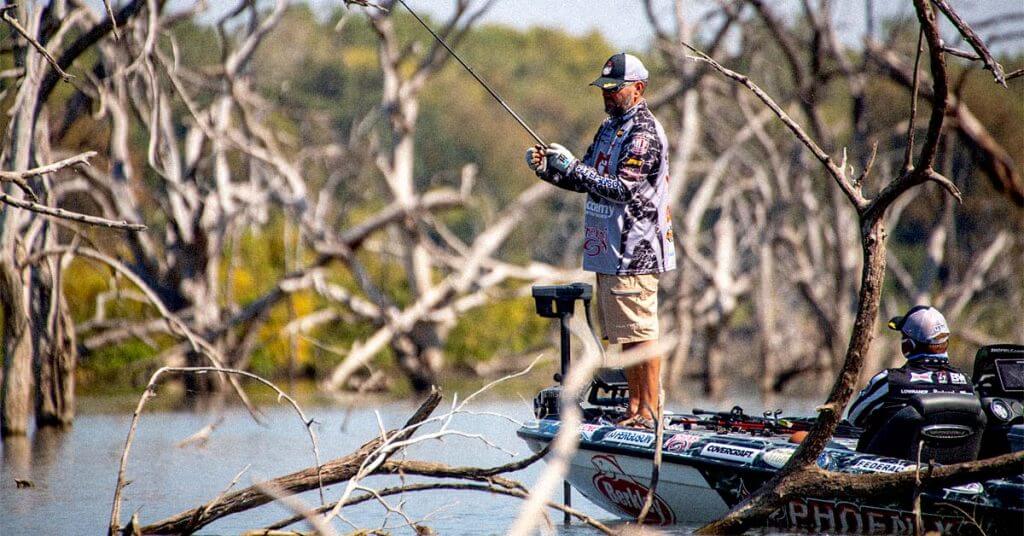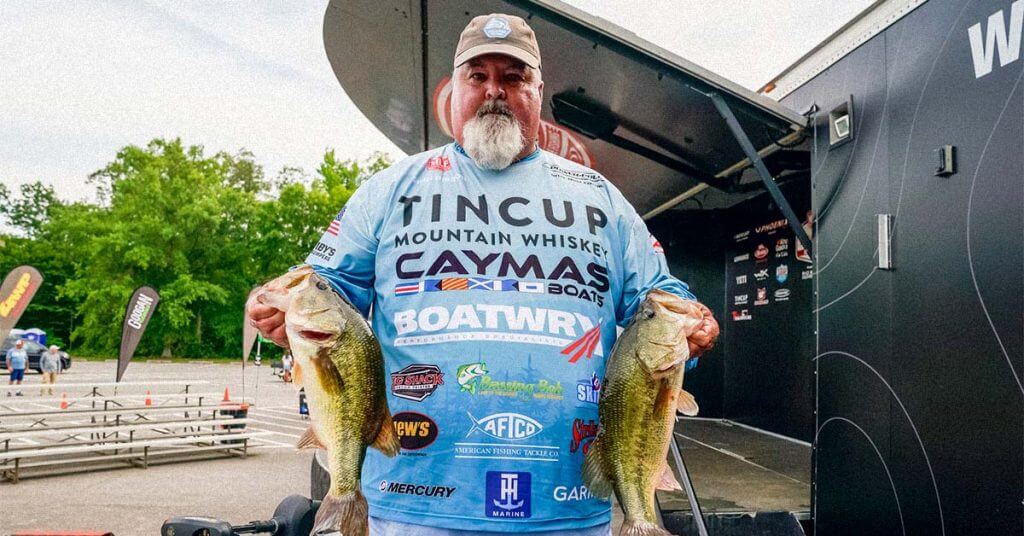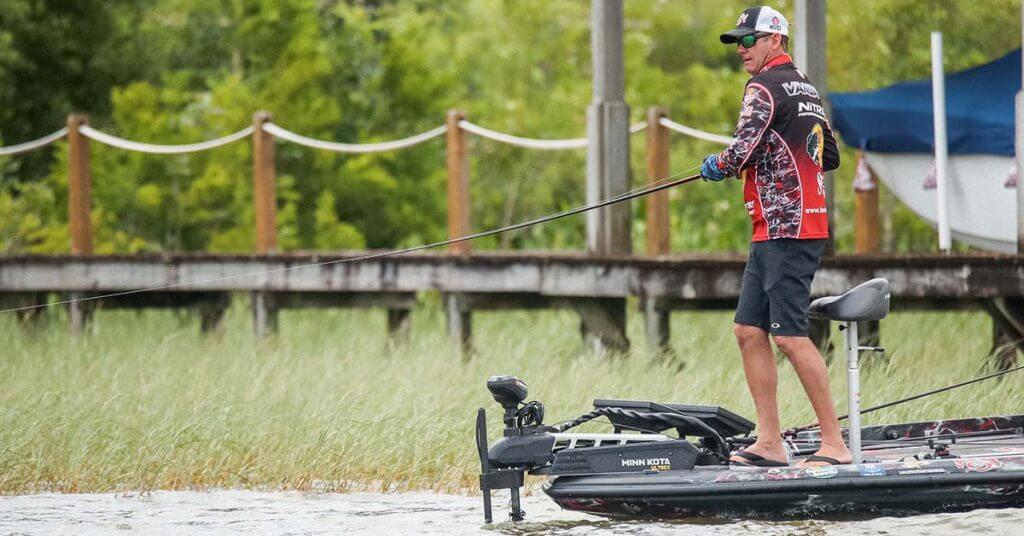Davy Hite gets the question all the time; “Do you think you could catch them if you were still out there?”
To which Hite answers diplomatically, “Maybe, but it’s not about me anymore.”
Hite was a legend on the Bassmaster circuit, winning every honor the sport bestows.
But he decided to retire in 2017 after a 23-year career when he received an attractive job offer–to become a color commentator for B.A.S.S.’s television shows.
He has been behind the mic ever since, analyzing what it’s like to be a pro in every situation imaginable.
As for that recurring question, Hite is careful not to second-guess today’s pros and their decisions.
“I don’t think it’s my job to be a Monday morning quarterback and second-guess their decisions,” said Hite, who co-hosts Bassmaster LIVE on FSN1.
But just to prove it to himself…
“Sometimes, I’ll go out the next day and fish some of the spots where I think they might have been,” he said. “And I’ve had some good days that way. But I pretty much keep that to myself.”
That’s Davy Hite, a class guy, whether it be on the tour or in the field broadcasting.
We’ll look at his road to greatness, how his early struggles shaped his life, some of his favorite lures and tactics, and his perspective on how pro fishing has changed.
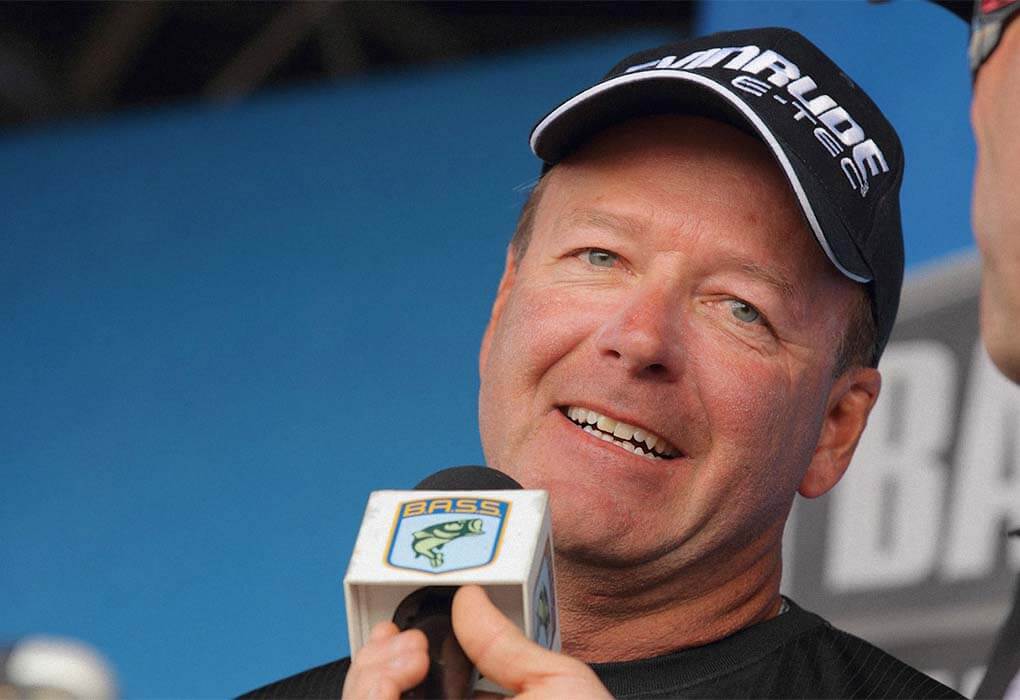
Davy Hite is on the opposite end of the mike now, interviewing the pros as one of the co-hosts for the Bassmaster Live TV show (photo by Seigo Saito/B.A.S.S.)
Early Retirement
It isn’t often that pro athletes retire at the top of their game. But that’s how it was for Hite.
He wasn’t dominant like he was early in his career, but he was still competitive.
“Some of my friends said, ‘I think you still have a couple of wins left in you,’ and I really believe that might have been true,” Hite said.
“But I had been thinking about what I might do when I retired, and I couldn’t think of anything.
“If you fish for a living, you don’t retire to go fishing.”
The answer came when B.A.S.S. offered Hite a featured spot on their television shows.
Management watched the way Hite handled himself when he was interviewed following major tournaments, and they were convinced he could fit in nicely with other co-hosts.
Today, he teams with Mark Zona, Mike Suchan, Ronnie Moore, and Dave Mercer on the Bassmaster Live Show, and he is loving his new role.
“To be doing commentary and co-hosting shows, that’s something I never dreamed I would be a part of,” Hite said.
“But I didn’t want to be out there traveling the nation when I was 60 to 70 years old and not competitive anymore.
“Opportunities like this don’t come around every day. I knew I had to take it, or I might not ever get another chance.”
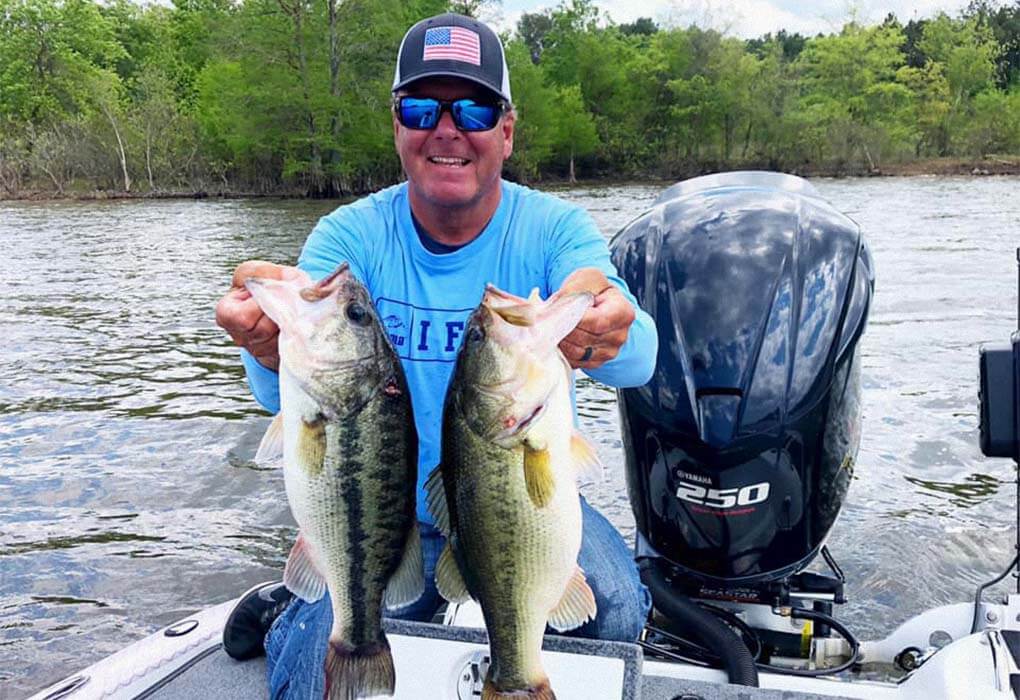
Though he no longer competes on the Bassmaster Elite Series, Davy Hite can still catch big bass (photo courtesy of Davy Hite).
A Tie to His Past
Davy Hite remembers his roots.
When he fishes, he always carries an old Zorro spinnerbait in its original package and weathered pliers to remind him.
Those mementos belonged to his grandfather, a man who Hite labels his hero.
“When I was a kid, grandpa would always tell me to use a spinnerbait like that when I wanted to catch a big one,” Hite told YourBassGuy.com.
“He always had those pliers with the yellow handles beside him in the boat, especially when we were running trotlines.
“It’s my way of remembering all he did for me.”
Indeed, Hite’s grandfather played a big role in shaping Hite’s life. Hite came from a broken home, and his parents divorced when he was only 5.
He fished with his dad after the divorce and remembers catching his first bass when he was 6.
“I can still remember everything about that fish,” he said. “I caught it on a Devil’s Horse.”
But Hite didn’t become serious about fishing until his grandparents took him in when he was 11 and took the responsibility of raising him.
“I didn’t realize at the time what a sacrifice they were making,” Hite said. “They were living on one social security check, and it wasn’t easy. But I never felt like I did without.”
Grandpa bonded with Hite in a fishing boat. They lived on the shores of Lake Murray in South Carolina, and the old man and the young boy were on the water whenever they got a chance.
Grandpa had one of the first bass boats made, and he competed in a few tournaments. But mostly, he fished for recreation, doing everything from casting for bass to running trotlines for big catfish.
“I saw grandpa catch some big bass, and that really got me into it,” said Hite, 57, who lives in a small town called Ninety-Six in South Carolina.
“He would always tell me to use that Zorro spinnerbait when the water got up, and there was a lot of new cover in the lake.
“We had some good trips back in those days. I owe a lot to my grandparents.”
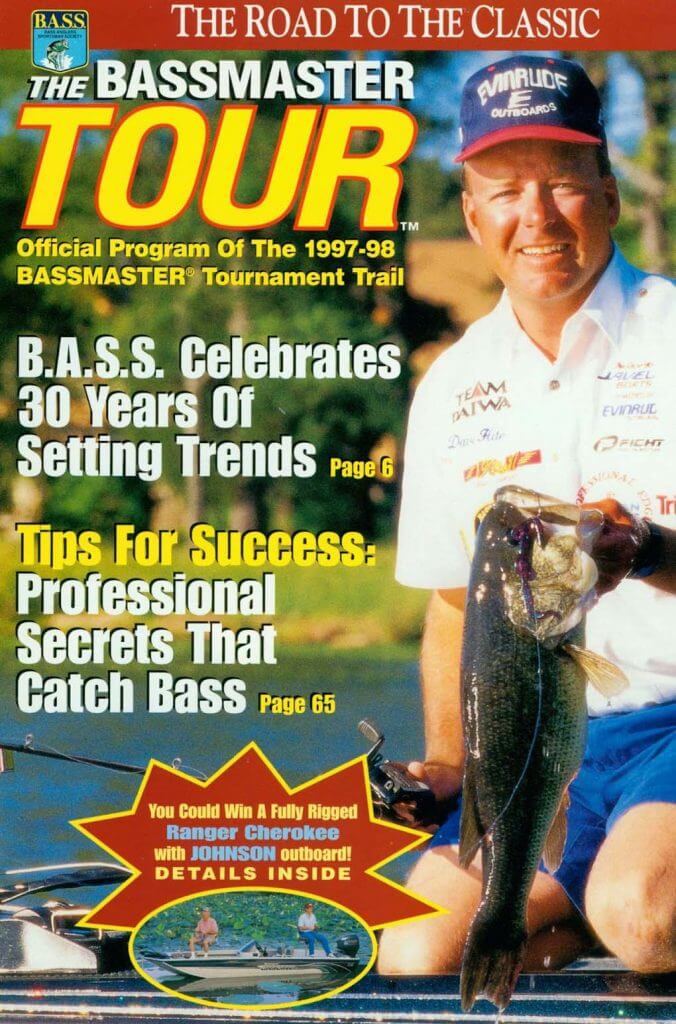
Succeeding the Old-fashioned
So how did a kid like Hite become such a success in professional fishing?
It might sound like a cliche, but Hite attributes it to plenty of time on the water.
There were years when he spent up to 300 days on the water, most of them on his home lake, Murray. He tested a multitude of lures and techniques to the point where he felt comfortable in a wide range of situations.
“Back when I got started, we didn’t have all the information that is available today,” he said. “I had Bassmaster Magazine and Bill Dance and Virgil Ward on TV.
“The best way to learn was to spend time on the water.”
Fittingly, Hite won his first B.A.S.S. tournament on a Zorro spinnerbait like the one his grandpa taught him to use.
He soon showed his versatility on the pro tour by doing well with a variety of techniques, everything from flipping to deep-water cranking.
“You can’t get caught up in fishing how you want to because the bass aren’t always going to be hitting that way,” he said. “I feel pretty comfortable with a flipping stick in my hands but I‘ll do whatever it takes to win.”
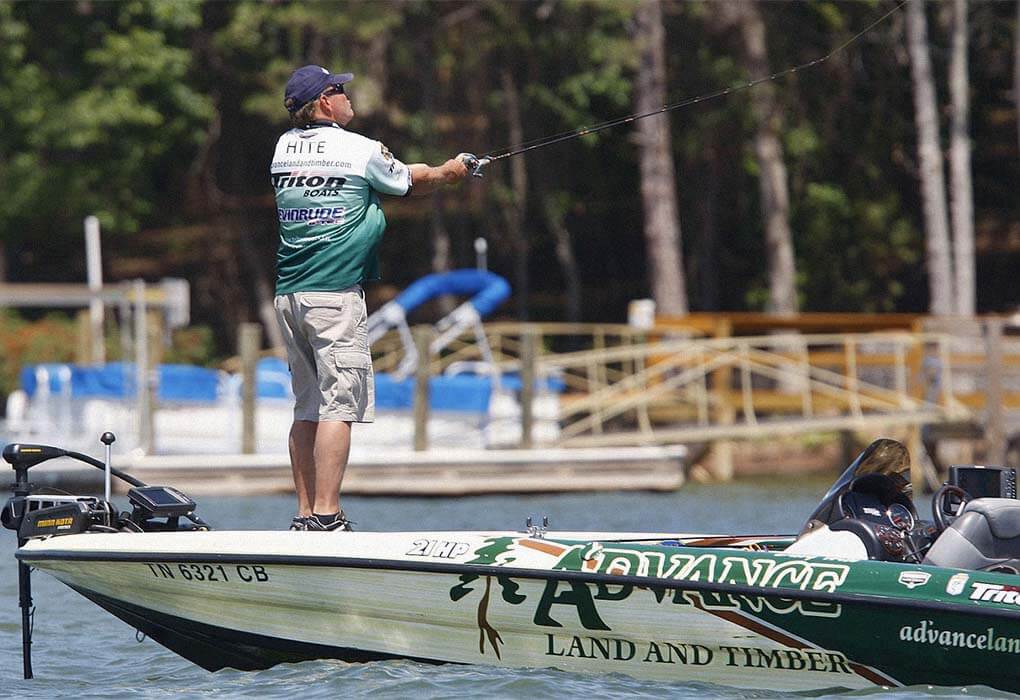
Davy Hite knows that bass can be caught year-round, from the heat of summer to the cold of winter (photo by Gary Tramontina/B.A.S.S.)
Never Too Hot
So, you’re one of those anglers who believe the bass don’t bite in the heat of summer? Well, Hite disagrees.
He refers to the 1994 Bassmaster Classic, which he won.
The air temperature was 100 degrees, and the humidity made it seem even hotter on the Louisiana Delta. But Hite figured out a way to get the bass to bite.
He located a spot where he found several dead bass floating on the surface, and he gambled.
He figured there had to be other survivors, and there was plenty of cover to hold them, so he devised a game plan centered on flipping Gambler plastic worms to shallow vegetation.
Using a worm with a 3/8th-ounce sinker, he swam the bait in and out of the duckweed and hyacinths in 1 to 4 feet of water.
“When you have vegetation, you’ll always have fish shallow,” Hite told YourBassGuy.com. “I just look for something different–maybe a stump, a rock, a little dropoff, the composition of the bottom, whatever.”
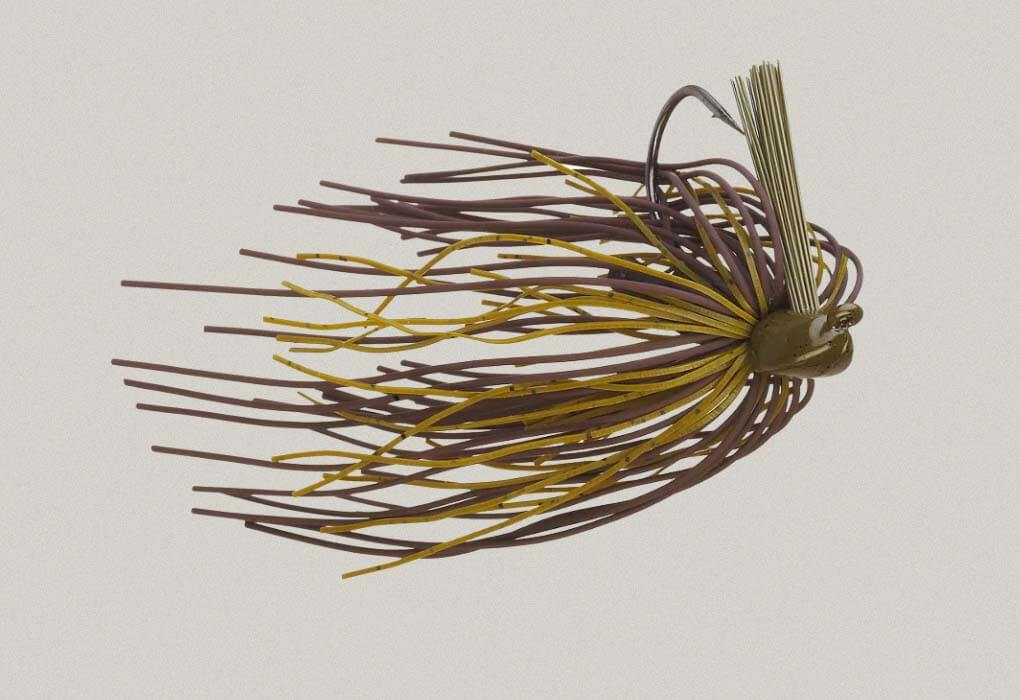
Mopping Up With the Mop Jig
When Hite won a Bassmaster Elite tournament at Clarks Hill Reservoir in 2006, he revealed a bait that was a local favorite on the Georgia body of water.
The Mop Jig, an oversized bait, had the long living rubber tentacles that puffed out when it settled to the bottom. In short, it looked like a mop in the water, and that’s how it got its name.
Because of its size and profile, it was and still is a big-bass catcher. It’s designed to simulate a big crayfish, and it is effective when cast or flipped.
At the time Hite used it to win the Clarks Hill tournament, it wasn’t even on the national market yet. But Buckeye Lures capitalized on the publicity Hite provided and released it on a national basis soon after Hite’s win.
It enjoyed brisk sales for a while when it was a hot lure. It remains on the market today, though its popularity has waned as other jigs have come on the scene.

Rapala’s DT (Down-To) Series crankbaits get baits down to depths where bass hold.
Deep Crankin’
In the past, bass fishermen always had trouble getting their crankbaits to dive deep enough to reach off-shore bass.
But that is no longer a problem, thanks to companies such as Rapala.
The legendary lure manufacturer has developed a series of DT (Down-To) crankbaits designed to dive to a targetted zone.
Some of its models, such as the Big Shad, dive to 20 feet, once unheard of in the crankbait market.
Hite and a fishing partner used Rapala’s DT 16s and DT 20s recently to catch big bass in flooded timber.
“I’m always trying to deflect my crankbaits off something,” Hite said. “In this case, it was the timber or the bottom.
“You have to read the bass to see what they want. Sometimes, I’ll pause the bait after I deflect it off something. But other times, I’ll speed it up, so it looks like a baitfish trying to get away.”
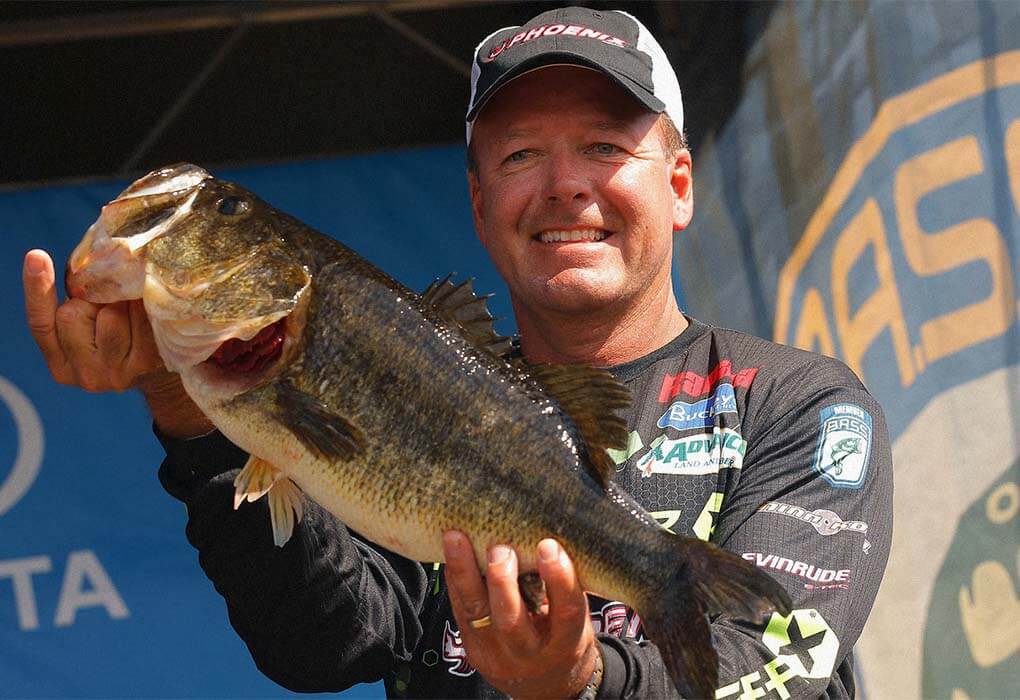
Topwater baits can elicit big bites from big bass (photo by B.A.S.S.)
Learning Patience
When fishing a topwater lure, it’s easy to react too quickly. Force yourself to be patient, and you’ll catch more bass, Hite said.
“Everyone does it. A bass comes up, and we want to set the hook right away,” he said. “But that’s how a lot of big bass are lost.”
The solution? React like you are bobber fishing.
“Wait until that bass pulls the bait under before you set the hook,” he said. “That way, you know he has it.”
Conclusion
Hite knows there are few shortcuts in bass fishing. He believes in putting in the time on the water to learn what the fish want.
Remember that he logged 300 days on the water some years in his younger days. That’s a lot of casts.
We don’t expect you to follow his example. But force yourself to get out even when conditions aren’t ideal and experiment with some of the techniques Hite uses.
Best of luck with your fishing, and let us know if Hite’s advice pays off.

